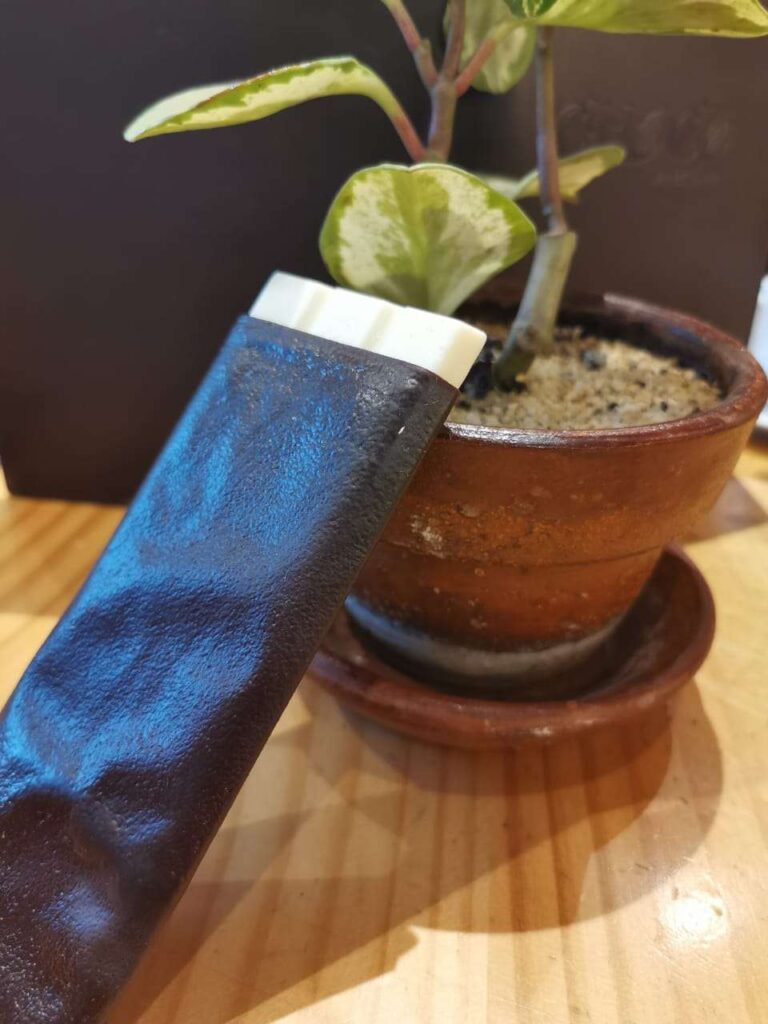The cocoa husk is equivalent to approximately 20% of the weight of the fruit. It is used as fertilizer for crops, but most of the time only a percentage is used, while a large amount is wasted and ends up in the garbage. But this is changing, as in recent years its use is being implemented in biodegradable packaging and containers.
It is important to distinguish between shell and husk. Cáscara is the thick shell, which is called pod, maracas or mazorca. Cocoa husk, on the other hand, is what covers the cocoa bean, and is obtained from the dehulling of the seed.
Caopak: from Peru to the world
In 2020, the young Peruvian Alejandra Cubaan engineer in the food industry, has created Caopaka venture that reuses products from the food industry, such as cocoa shells, and transforms them into natural 100% containers that can be used to wrap chocolates or any type of solid product.
Caopak manufactures sheets, as if they were sheets of paper or fabric, which can be used for wrapping various dry products, since it is a water-soluble product.
It is important to note that, according to Cuba, the shelf life of the packaging is approximately 4 to 6 months. He assures that the products can be ready for composting in less than a week, if they are introduced into the soil of the garden or other type of planting, which evidences their organic nature.
Experience in Ecuador
An initiative is currently underway in Ecuador to develop a bioplastic made from cocoa husks, which is 100% biodegradable and just as resistant as traditional plastics. It does not contain chemical substances that are harmful to the environment and does not alter the taste or smell of packaged food and beverages.
This project is developed by the NGO Ayuda en Acción and the Consejo Superior de Investigaciones Científicas de España (CSIC)The company sent a group of scientists to Ecuador to work with 500 cocoa-producing families.
The containers, intended for storing food, are made from paper, cocoa husks and waxes to make them impermeable. The purpose of this project is for local producers to market their products in biodegradable packaging under a circular economy model.



